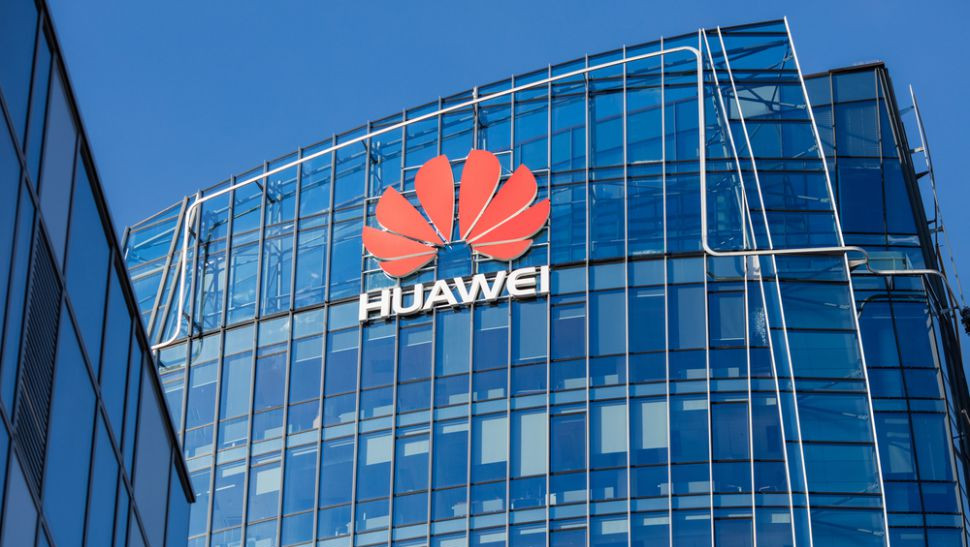Huawei denies US fraud and theft charges
US DoJ files 23 charges against Chinese mobile giant

Sign up for breaking news, reviews, opinion, top tech deals, and more.
You are now subscribed
Your newsletter sign-up was successful
Huawei has rejected a series of criminal charges filed against the company by the US Department of Justice (DoJ).
The Chinese mobile giant faces 23 charges of bank fraud, obstruction of justice and technology theft in a development that exacerbates the multiple challenges faced by the company and heightens trade and diplomatic tensions between Washington and Beijing.
The charges comprise two separate indictments. The first concerns 13 counts of financial fraud, the breaching of economic sanctions against Iran, and money laundering, while the second involves 10 counts of theft and charges related to the theft.
Huawei denial
The first indictment relates to the arrest of Huawei CFO Meng Wanzhou in Canada last year. It is alleged that Wanzhou aided Huawei to avoid sanctions on doing business in Iran, which if proven, could have put multinational banking organisations at risk of breaking those sanctions too.
The second tranche of charges relate to the alleged theft of US carrier T-Mobile’s intellectual property. The US operator claimed in 2014 Huawei illegally stole technology related to mobile phone testing robot called ‘Tappy’, and a civil court in Seattle ruled that although trade secrets had been misappropriated, the act was not malicious.
Huawei blamed rogue elements within its organisation for the theft, but the DoJ claims it has evidence of a company-wide conspiracy to steal information related to Tappy.
The Shenzhen-based firm said it was “disappointed" and that attempts to discuss the allegations and Wanzhou’s arrest had been dismissed by the DoJ.
Sign up to the TechRadar Pro newsletter to get all the top news, opinion, features and guidance your business needs to succeed!
“Huawei is disappointed to learn of the charges brought against the company today. After Ms. Meng’s arrest, the company sought an opportunity to discuss the Eastern District of New York investigation with the Justice Department, but the request was rejected without explanation," a spokesperson told TechRadar Pro.
"The allegations in the Western District of Washington trade secret indictment were already the subject of a civil suit that was settled by the parties after a Seattle jury found neither damages nor willful and malicious conduct on the trade secret claim.
"The company denies that it or its subsidiary or affiliate have committed any of the asserted violations of U.S. law set forth in each of the indictments, is not aware of any wrongdoing by Ms. Meng, and believes the U.S. courts will ultimately reach the same conclusion.”
Multiple challenges
Huawei is facing battles on multiple fronts. Huawei has effectively been frozen out of the US market, although it does provide equipment to a number of smaller players in the country, while Australia has banned its operators from using Huawei equipment in their 5G rollouts on national security grounds. It has also been reported that the US is urging its allies to take similar actions.
On top of that, a Huawei employee has been arrested on allegations of spying – although Huawei has dismissed that person and distanced itself from their alleged actions.
Huawei has repeatedly denied accusations of spying, pointing out that it works with security agencies around the world and that it sells products to more than 500 operators in 170 countries without issue. This includes the UK, where BT, EE, Vodafone and Three are all customers.
There is unlikely to be any enthusiasm for a ban among customers who value Huawei for its innovations and fear a reduced pool of suppliers will increase prices.
Steve McCaskill is TechRadar Pro's resident mobile industry expert, covering all aspects of the UK and global news, from operators to service providers and everything in between. He is a former editor of Silicon UK and journalist with over a decade's experience in the technology industry, writing about technology, in particular, telecoms, mobile and sports tech, sports, video games and media.